Our Denver-based alumni came together for a networking event at the Wynkoop Brewing Company in January of 2024. Online JDinteractive students in town for an Arbitration Residency also joined in on the fun – see a few photos below.
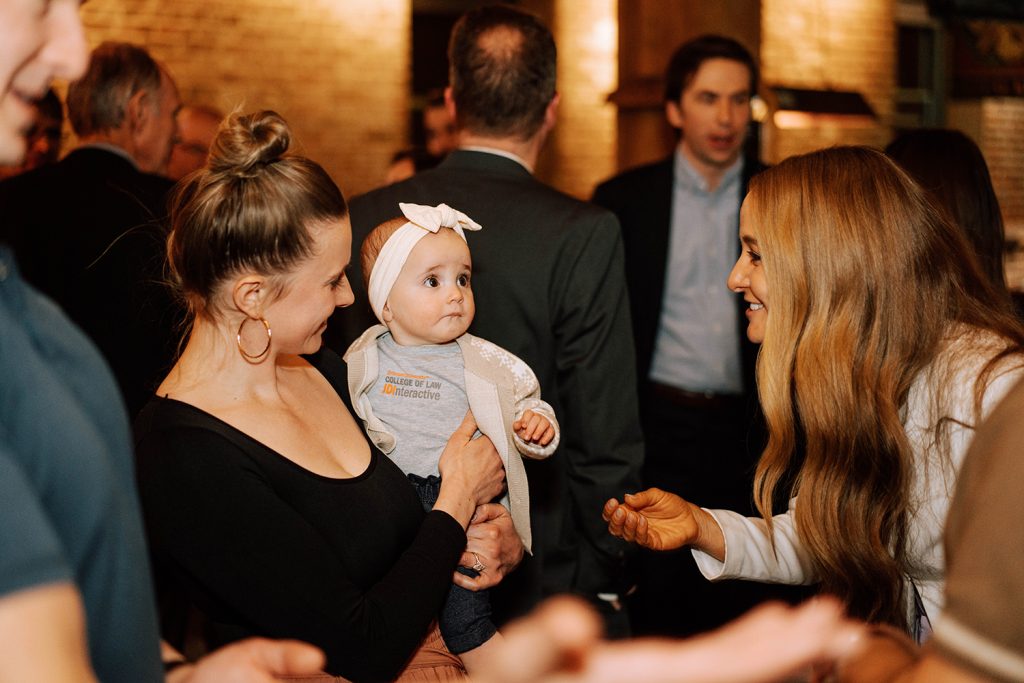


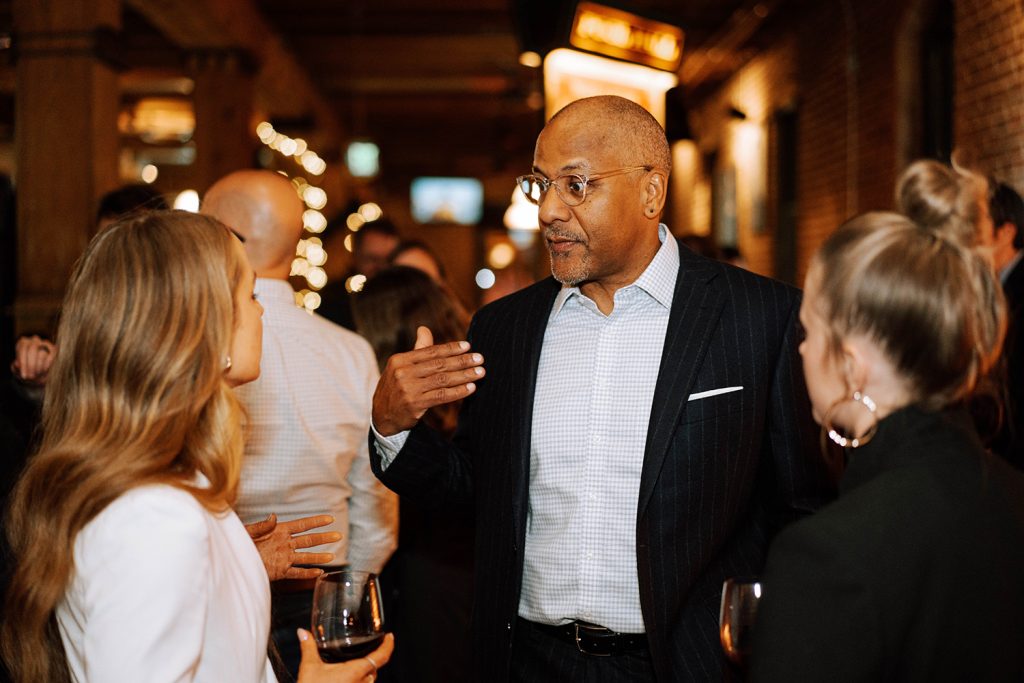
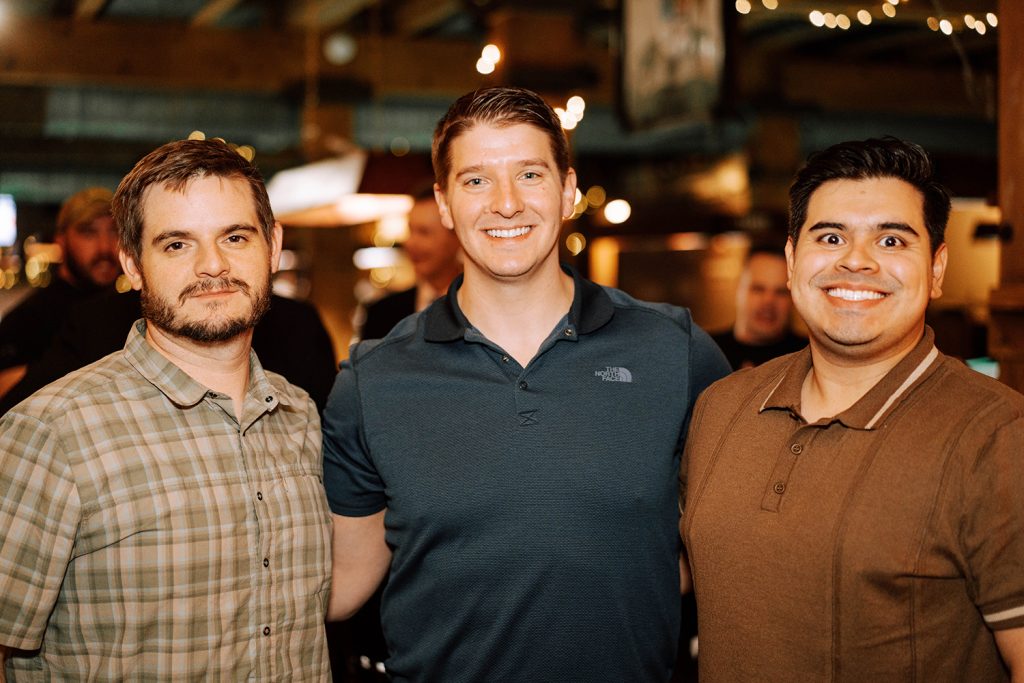
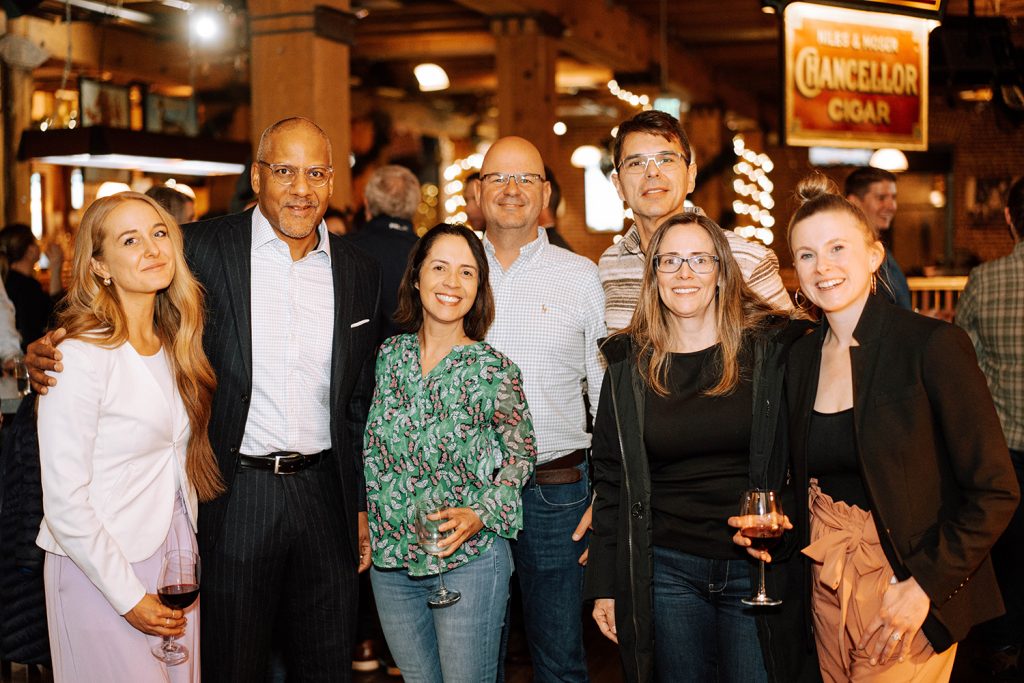
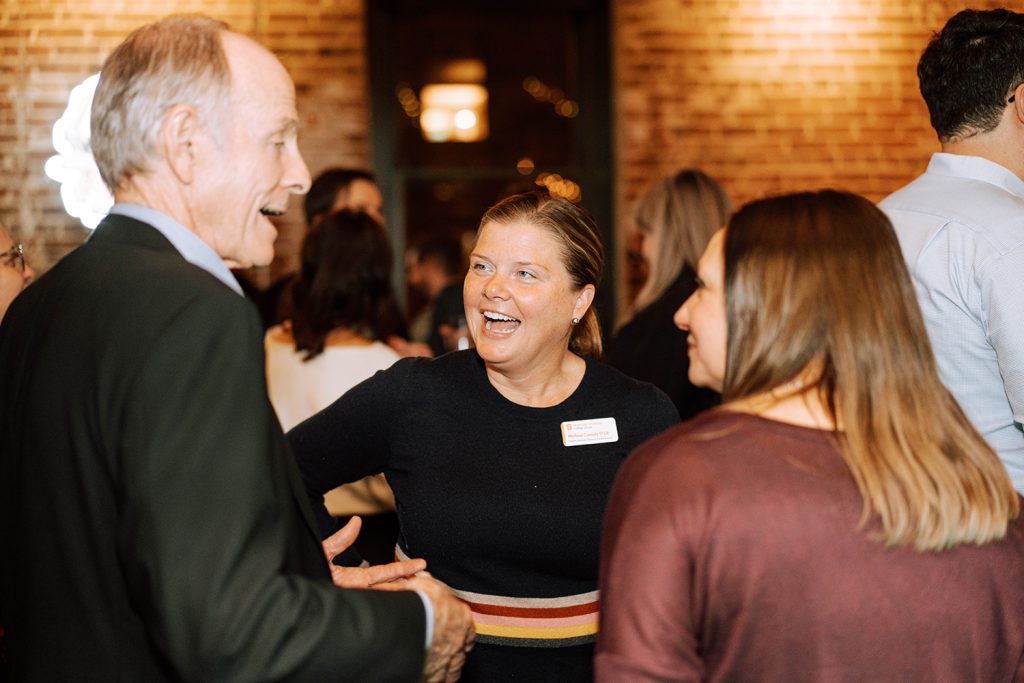
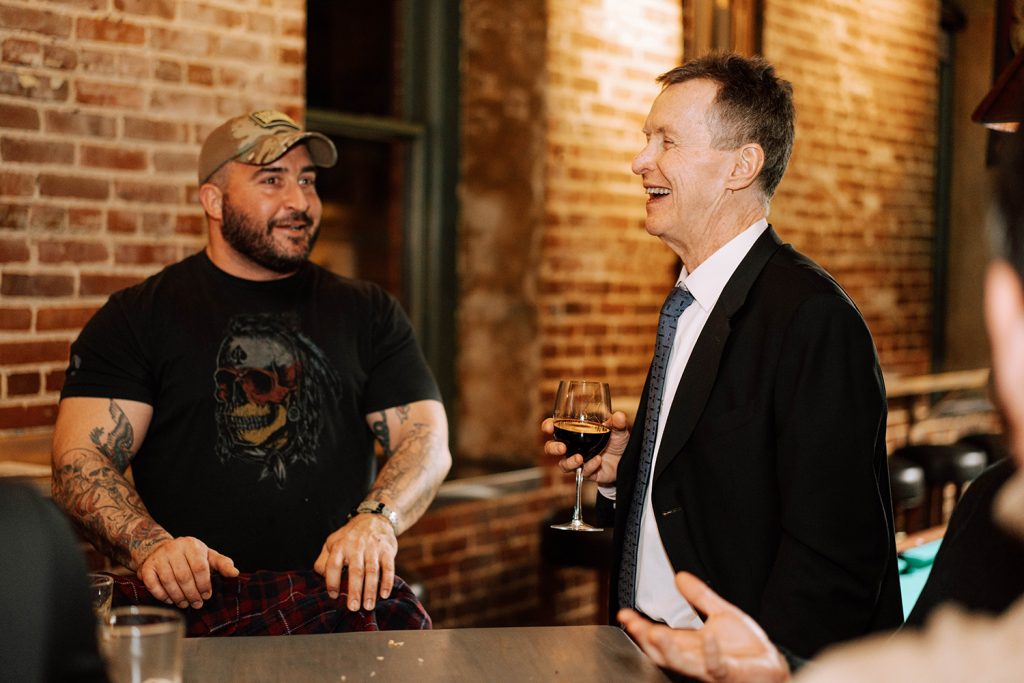
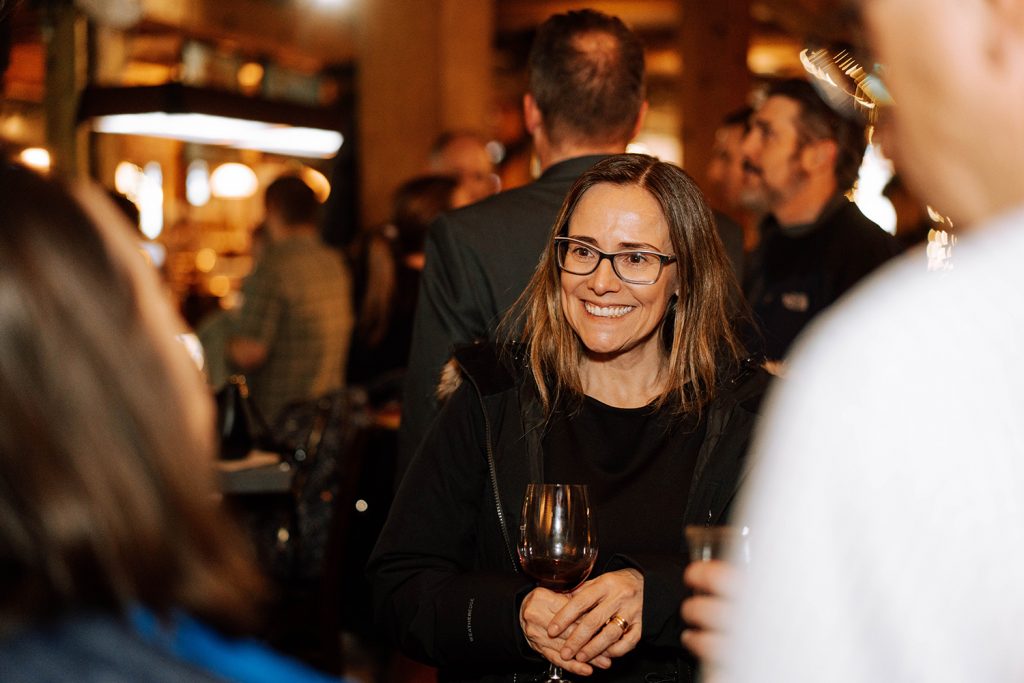
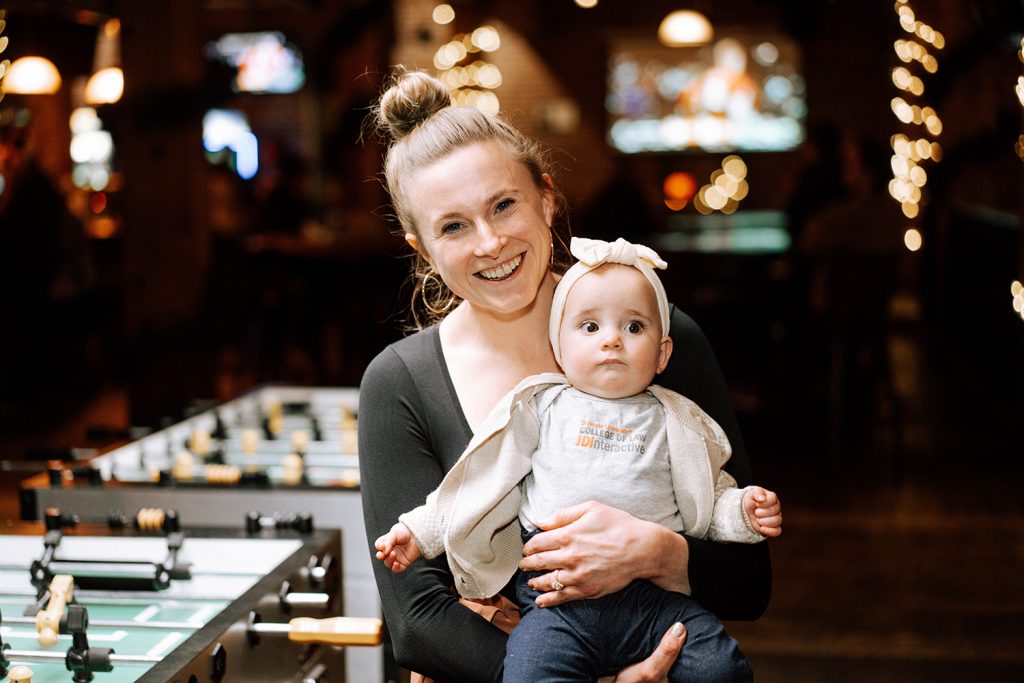
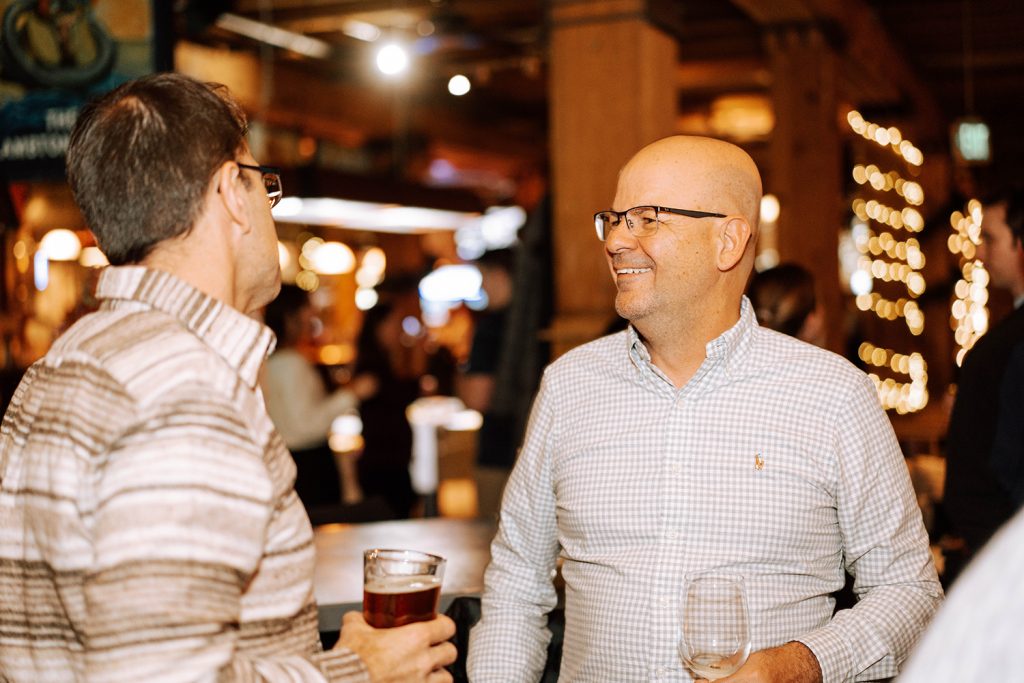
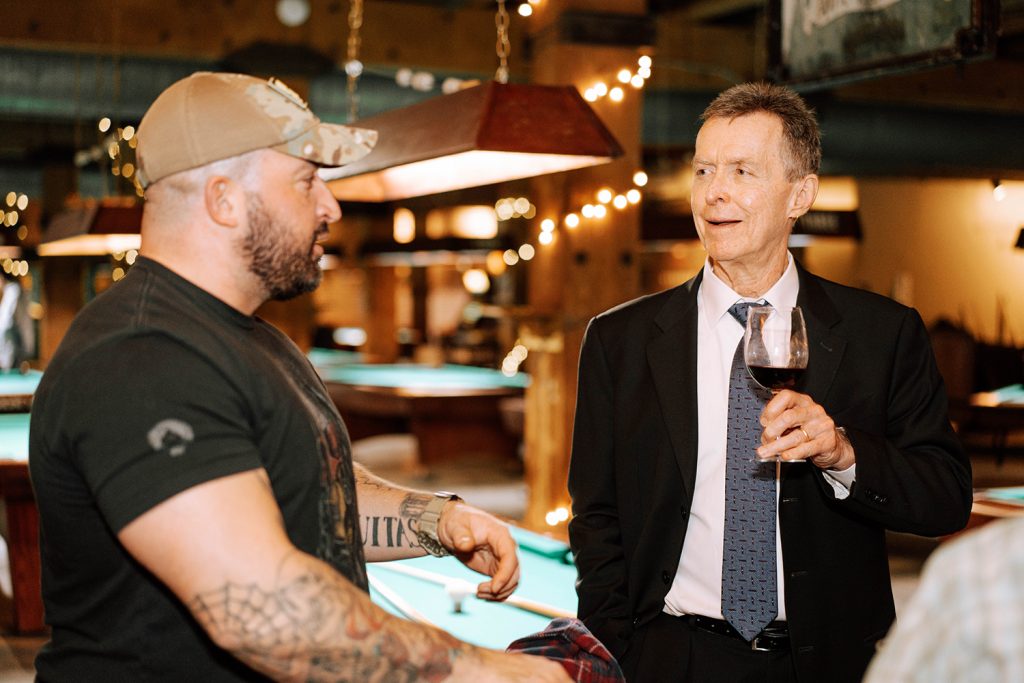
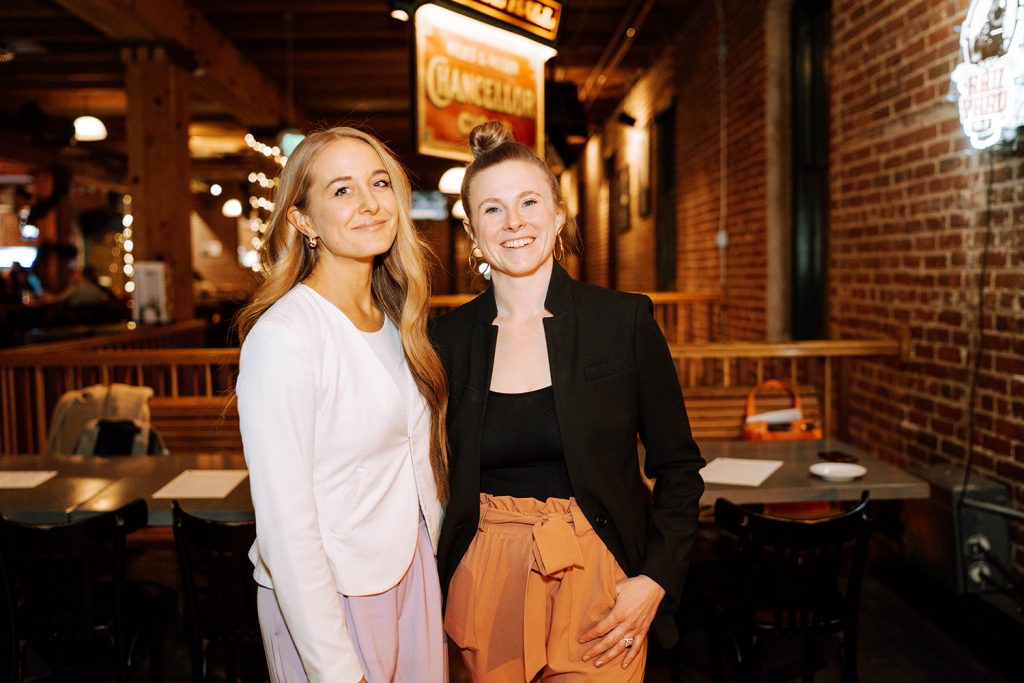

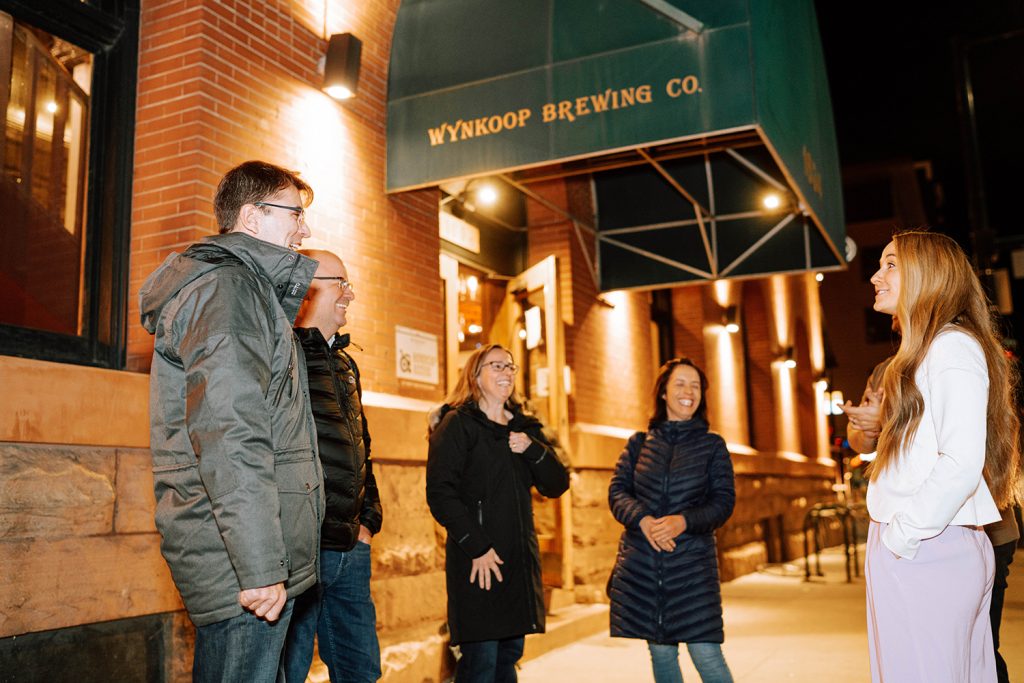
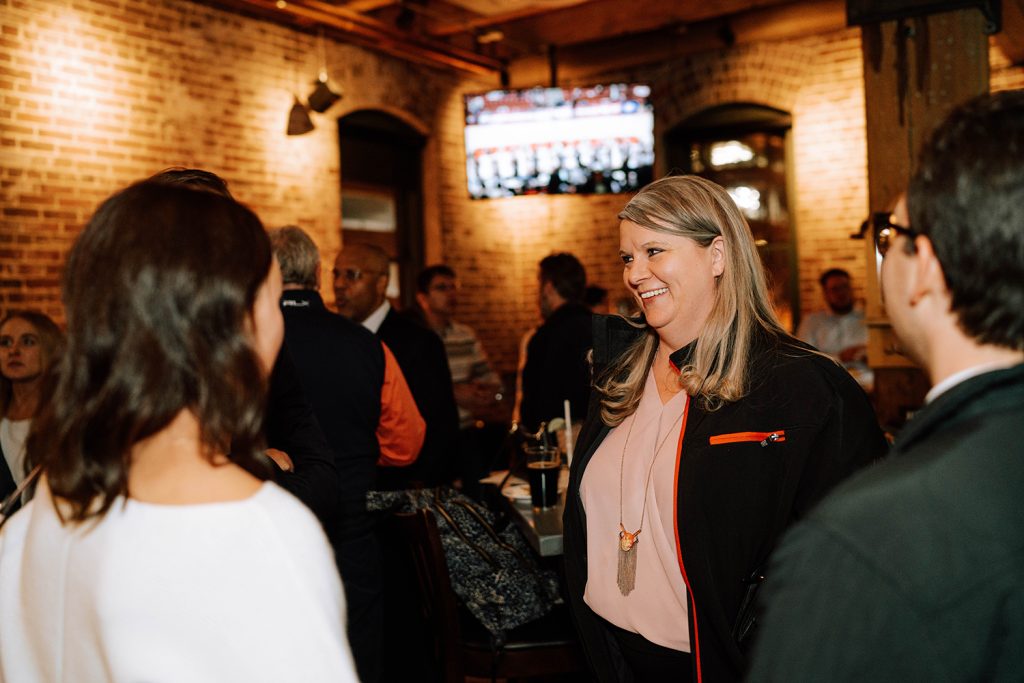
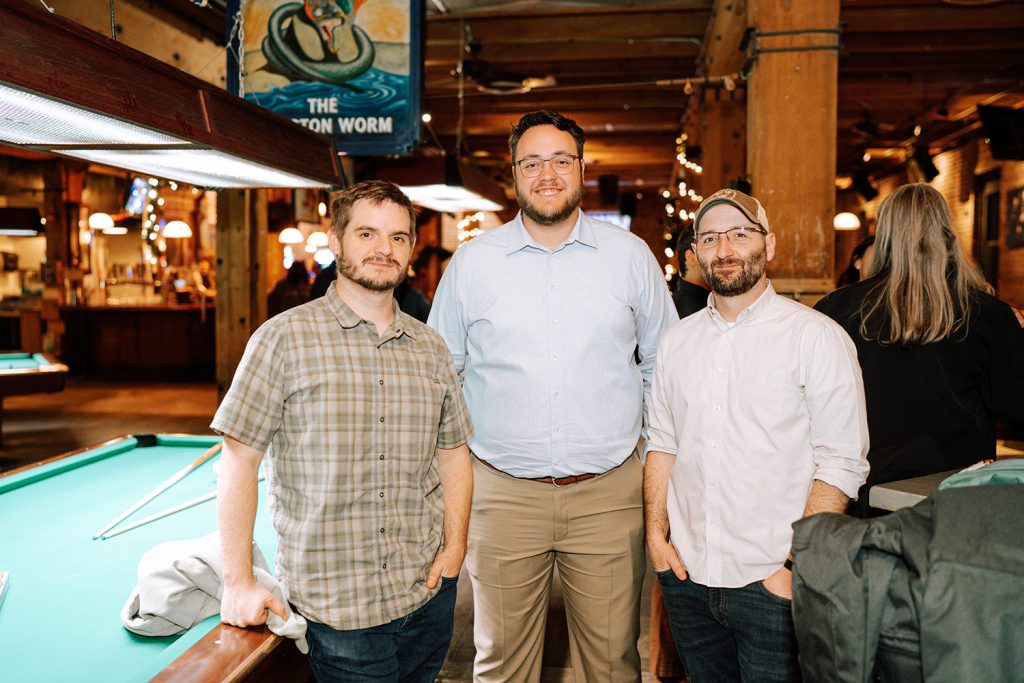
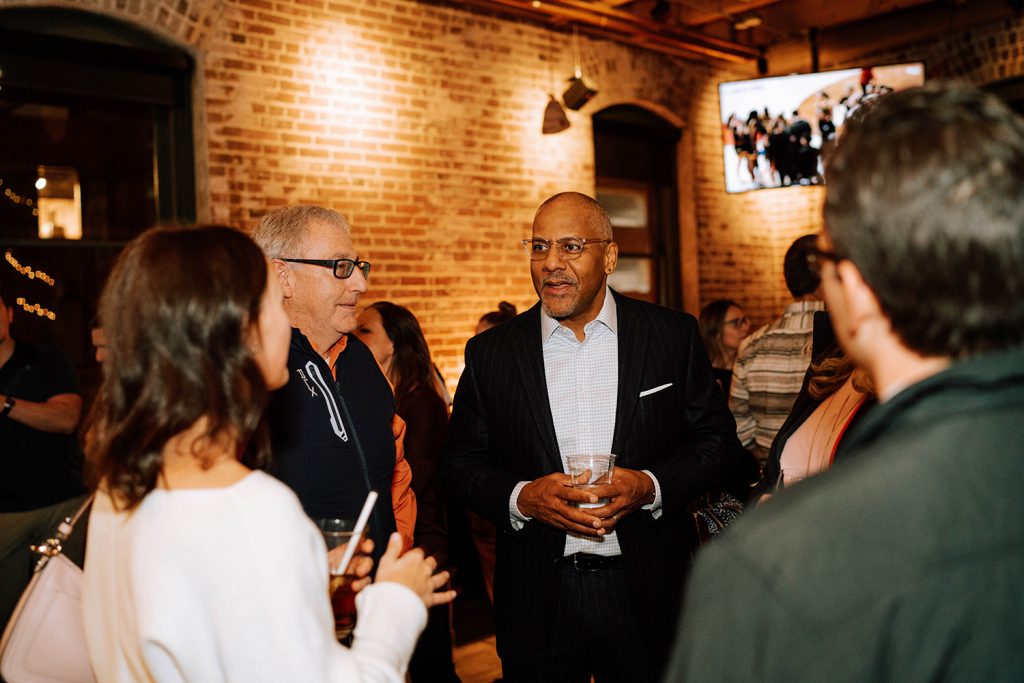
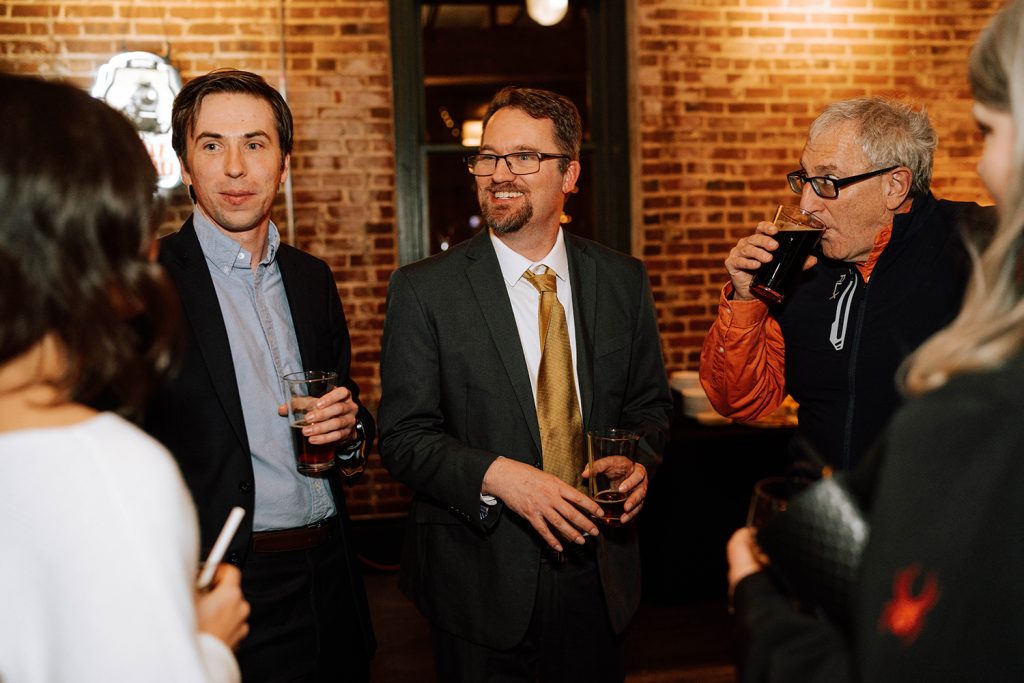

Our Denver-based alumni came together for a networking event at the Wynkoop Brewing Company in January of 2024. Online JDinteractive students in town for an Arbitration Residency also joined in on the fun – see a few photos below.




















Professor Shubha Ghosh, Director of the Syracuse Intellectual Property Law Institute, discussed with The Street the legal options for Taylor Swift in the recent Deepfake porn issue.
According to Ghosh, the first legal step is “identifying the right set of defendants to bring the possible claims against.” In theory, Ghosh said, “she could raise defamation suits against the AI software company and people who shared the image.”
Professor Arlene Kanter, the Founding Director of the Disability Law and Policy Program, recently spoke with NBC News Now about a lawsuit against Dunkin’ Donuts that claims the company discriminates against customers with milk allergies by charging them more for non-dairy alternatives. The lawsuit seeks remedy under the Americans with Disabilities Act (ADA).
“People who have chronic conditions, such as lactose intolerance or food allergies, if they are substantially limiting the ability to eat or function day to day, they are considered disabilities under the act,” says Kanter.
She adds, “They offer sweeteners that are not sugar and decaffeinated coffee. To single out a non-dairy alternative is discriminatory.”
Professor Robert Nassau, Director of the Sherman F. Levey ’57, L’59 Low Income Taxpayer Clinic, spoke with the Associated Press about the IRS’s pilot program to provide a free online tax filing service.
The IRS Direct File program is being tested in 12 states this year as an alternative to commercial tax preparation software.
“I really hate to see lower-income people giving money to paid preparers,” Nassau says. “I get angry about it.”
Crandall Melvin Professor of Law Shubha Ghosh commented to the New York Times on the verdict handed down in the copyright trial of tattoo artist Kat Von D, who was sued by a photographer for using his photo as the basis for a customer’s tattoo. The jury ruled unanimously in favor of Von D that her work did not violate copyright law.
Ghosh, Director of the Syracuse Intellectual Property Law Institute, said, “The idea behind fair use is that creative works build upon other creative works.”
(Syracuse, NY – January 24, 2024) Syracuse University College of Law’s Innovation Law Center (ILC) is hosting the “Venture to Victory: Pioneer Perspectives in Tech, Venture, and Private Equity” Symposium on Tuesday, February 13 from 1:30 p.m. to 4:30 p.m. in the Melanie Gray Ceremonial Courtroom.
The symposium will feature a panel of successful entrepreneurs, financial investors, and legal experts in a discussion on the challenges that high-growth, privately held tech companies face as they take on private equity, venture capital, or other forms of funding. Panelists will cover investment deals they have completed, trends in financing, and their career paths in the technology commercialization space.
Those interested in the legal, financial, business, and entrepreneurial aspects of high-growth companies are encouraged to attend. The event is free.
Brian Gerling L’99, Professor of Practice and Executive Director of the ILC, will moderate the discussion.
The event will be streamed live and a recording will be made available for those who cannot attend. CART will be provided.
The symposium is co-sponsored by the New York State Science & Technology Law Center, the College of Law’s Corporate Law Society and Intellectual Property Law Society, and the Blackstone LaunchPad at Syracuse University Libraries.
The panelists are:
Peter Alfano L’94, Partner, DLA Piper
Alfano represents private equity sponsors, corporations, and lenders in a wide variety of domestic and cross-border finance transactions, including leveraged acquisitions, corporate financings, dividend recapitalizations, restructurings, and asset-based lending transactions. He has experience across several tech industries and advises companies in connection with intercompany finance arrangements, corporate restructurings, and general corporate matters, including for private equity-owned portfolio companies.
Luke Cooper L’01, Founding General Partner and Managing Director, Latimer Ventures
Cooper is the Founding General Partner and Managing Director at Latimer Ventures. Latimer Ventures is an enterprise-focused Venture Capital firm dedicated to helping Black & Hispanic founders build and exit the next RedHat, Datadog, or Tableau. He spends most of his time fundraising and nurturing a strong pipeline of early-stage enterprise SaaS companies.
Before Latimer, Cooper was a 2x successfully exited enterprise software founder (Cybersecurity & Insurtech) with both exits to Fortune 300 acquirers. In 2020, he sold his company, Fixt, an enterprise-focused third-party administration software, to Assurant (NYSE:AIZ), a Fortune 300 leader in insurance risk management. After raising a $6.5M Series A, he became one of three Black Founders to reach a profitable exit that year.
James Kelly L’99, Partner and Chair, New York Private Equity, DLA Piper
Kelly is a strategic advisor to private equity funds and operating companies across many industries. He focuses his practice on representing private equity funds in all aspects of their investment activities, recently acting for Atlas Holdings, Bregal Partners, The Carlyle Group, Oaktree Capital Management, and Stellex Capital Management, among several others.
He is recognized by The Legal 500 US in Private Equity Buyouts and has been recognized for numerous consecutive years by Chambers in New York M&A, has been featured in Buyouts, including a Buyouts Deal of the Year, The Deal, Bloomberg, and Law360 as well as other leading publications. He has presented for several education providers, including Practicing Law Institute and Strafford, and has received recognition for his pro bono work, including the Pro Bono Publico Award from The Legal Aid Society. Kelly is a member of the Syracuse University College of Law Board of Advisors.
Lon Levin L’80 – President, SkySevenVentures
Levin is President of SkySevenVentures, which invests in, advises, and provides executive services for space and other technology businesses. He has more than 40 years of experience as an executive and entrepreneur in the telecommunications, media, and aerospace industries.
Recently, from 2017-2023, Levin was an executive for Lockheed Martin Space developing new businesses and markets. He served as President and Chief Executive Officer of GEOshare, an entrepreneurial subsidiary of Lockheed Martin, and as Vice President-New Ventures.
Levin co-founded XM Satellite Radio and played executive leadership roles in the formation and development of other satellite, space, and media companies including Mobile Satellite Ventures, XM Canada, Slacker Radio, American Mobile Satellite Corporation, TerraStar Networks (mobile satellite), GEOshare (condosats), and Parsec (lunar telecommunications).
He served as a U.S. Delegate negotiating technology treaties at many International Telecommunication Union conferences and holds five telecommunication satellite patents. Levin has served as a Special Government Employee on the Defense Department’s Defense Business Board and the NASA Advisory Council.
Levin is Treasurer and a member of the Board of Directors of The Planetary Society and Board Member Emeritus of the Space Foundation, where has was Chairperson from 2014-16.
Kevin Whittaker L’02, Chief Legal & Compliance Officer, Ripcord
Whittaker is the Chief Legal & Compliance Officer and Corporate Secretary of Ripcord, a NASA spinoff specializing in the digital optimization of data through robotics and AI. Ripcord is backed by Silicon Valley’s leading investors, including Kleiner Perkins and Google Ventures.
Whittaker provides counsel on Venture Financing, M&A, Operations, Human Resources, and Governance. As a member of the Executive Leadership Team, he plays a pivotal role in aligning the company’s business strategies with legal and compliance standards, fostering collaboration with stakeholders, customers, and investors.
Whittaker was a speaker at Match-Up 2023, speaking on: “AI Unleashed: Pioneering a New Epoch of Innovation” which explored the profound impact of artificial intelligence (AI) on diverse industries and its pivotal role in shaping the future. Before becoming an in-house corporate counsel, he was a Partner at Reed Smith, and of counsel to Baker McKenzie and Orrick, Herrington & Sutcliffe.
Reacting to a class action lawsuit brought against Dunkin Donuts where the store charges more for non-dairy milk, Professor Arlene Kanter sees this as a strong case for discrimination under the Americans with Disabilities Act (ADA). She is quoted in the NBC News article “Is that extra charge for nondairy milk discrimination? A lawsuit challenges Dunkin’ Donuts’ fees.”
“If a person qualifies as a person with a disability, and they’re entitled to an accommodation or modification — which in this case looks pretty simple as nondairy milk — they cannot be charged extra,” says Kanter, adding that allergies and intolerances can be a disability if they substantially limit a major life activity.
Professor Gregory Germain recently answered questions about personal loans at Wallet Hub. He discussed tax implications, recommended uses for a personal loan, and the pandemic’s impact on personal loans.
When asked about what happens if you have trouble paying back a personal loan, Germain said “First, you have to cut back your living expenses and develop a plan to pay off your debts as quickly as possible. This is not easy. It requires you to recognize that you got into this situation by living above your means, and that things have to change. If you are so far in debt that you cannot economize out of the situation, you need to consider filing bankruptcy and starting over, if you are eligible for a discharge in bankruptcy. But bankruptcy will be only a temporary measure if you do not change your living and spending habits. Ultimately you have to earn more than you spend, and make prudent financial decisions, if you want a future of financial freedom, security and prosperity.”
Raul Velez III L’18 joins the College of Law as an Adjunct Professor. He will teach Deposition Practice.
Velez is currently a Trial Attorney with Sobo & Sobo, LLP, where he has tried to verdict and settled personal injury and other cases for hundreds of clients. Before that, he was an Associate Attorney with Goldblatt & Associates PC, with a primary focus on traumatic brain injury litigation, and with Cuddy Law Firm PLLC, where he represented students with special needs against the New York City Department of Education. Recently, Velez *was awarded the Young Alumni Award by the College of Law.
While in law school, he spent several semesters as an Honors Intern at the United States Securities and Exchange Commission (SEC) in Washington, D.C. While at the SEC, he received a Certificate for Outstanding Service to the United States Securities and Exchange Commission, Office of Inspector General. He was also an award-winning member of the Trial Team and competed both regionally and nationally.
Since graduating from the College of Law, Velez has been a Lecturer for the Introduction to Trial Practice Residency Program for the College of Law’s hybrid online J.D. program and a Guest lecturer for the Trial Practice Course and Deposition course. He also coaches Travis H.D. Lewin Advocacy Honor Society trial teams.
Velez earned a B.A. in political science in 2015 from the California State University – Northridge, and a J.D. from Syracuse University College of Law in 2018.
The Psychology Today article “How Suspicion Feeds Stigma Against Neurodivergent People” cites Professor Kat Macfarlane’s Fordham Law Review paper “Disability Without Documentation.”
Macfarlane, the director of the Disability Law and Policy Program, notes in her paper that the Americans With Disabilities Act (ADA) never intended to require medical documentation to gain accommodations.